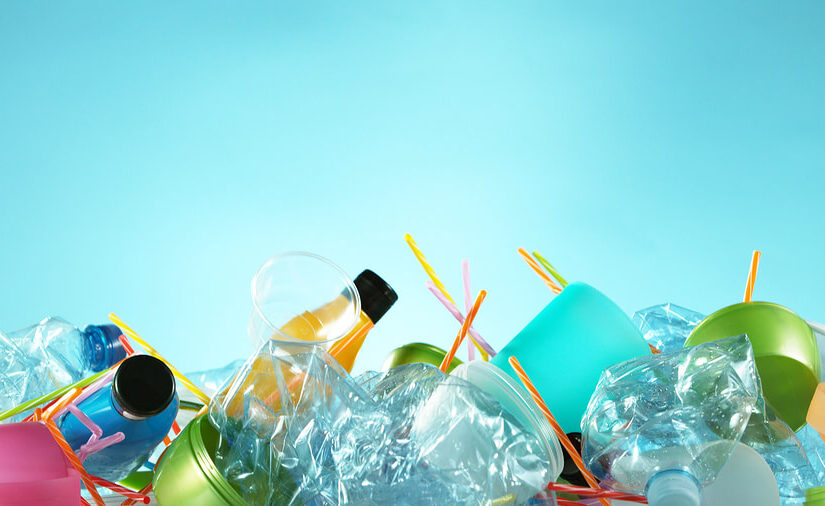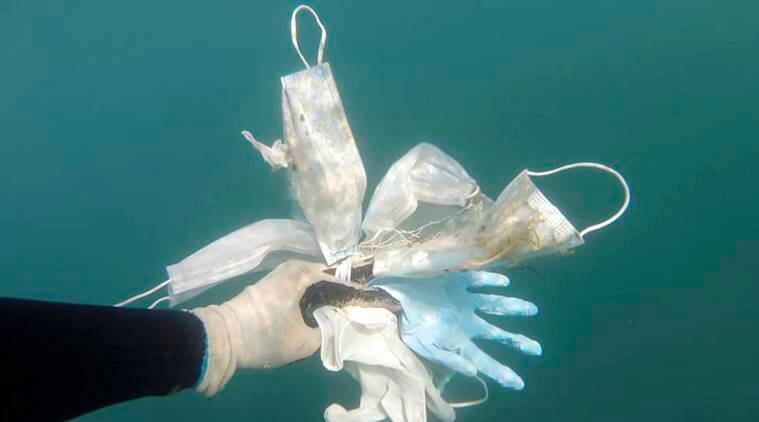Due to health concerns prompted by the Coronavirus pandemic, consumers and restaurants have become increasingly reliant on single-use plastic bags, containers, and utensils as the country reopened after months of lockdowns.
The outbreak came as cities and states were progressing in their efforts to ban plastic bags, switching to paper or re-useable products in place of single-use plastics.

Now, municipalities and cities are delaying plastic bag bans or rolling them back due to fears that reusable products can spread disease. Many stores are banning customers from bringing their own bags. And recycling operations are being cut back as a result of health concerns.
In its report, World Wildlife Fund warns that single-use plastics will threaten the battle against plastic pollution, with a 40% increase forecast over the next decade.
Restaurants, in particular those that previously curbed plastic waste but have not amended their policies since the pandemic, are especially guilty of the problem. Many restaurants have not adopted policies limiting the amount of plastic in takeout orders.

If you consider Just Salad, the popular chain had been using reusable bowls to reduce plastic waste. When the pandemic hit, the chain eliminated the whole reusable bowl replacement program, closed restaurants and transitioned to delivery and pickup – which meant only using disposable packaging.
“The environmental fallout is definitely real,” said
Sandra Noonan, Just Salad’s chief sustainability officer.
Many restaurants, including Starbucks and Dunkin’, stopped allowing customers to use reusable cups when the pandemic hit, as well, including Salad Works.
CEO Michael Oshman, of the Green Restaurant Association, says it is too early to tell whether the pandemic will contribute to additional waste generation.
Unfortunately, most local economies still lack infrastructure for reusable and compostable takeout packaging, and environmentalists fear the pandemic threatens to discourage consumers from using them, just when they were beginning to make progress.

“The plastic industry seized on the pandemic as an opportunity to try to convince people that single use plastic is necessary to keep us safe, and that reusables are dirty and dangerous,” “The fact that neither of these things is supported by the best available science was irrelevant.”
John Hocevar, ocean campaign director at Greenpeace.
It added that the artificial fears of Covid-19 ultimately reduced public safety by diverting attention away from critical actions such as wearing masks and maintaining social distance.
Conclusion
One of the major challenges for reinstating zero waste policies during this time is establishing zero waste services and developing returnable or reusable systems.
For restaurants, one easy fix would be, perhaps in conjunction with pickups and deliveries, asking customers if they would like plastic utensils with their food. This can often be done by asking customers to opt in if they want single-use plastic products with their orders.
After the lockdowns, Just Salad announced it had implemented its own online-ordering platform, which saved them money and cut utensil use by 88%. The chain is working with third-party delivery services to roll out the new practice universally.




